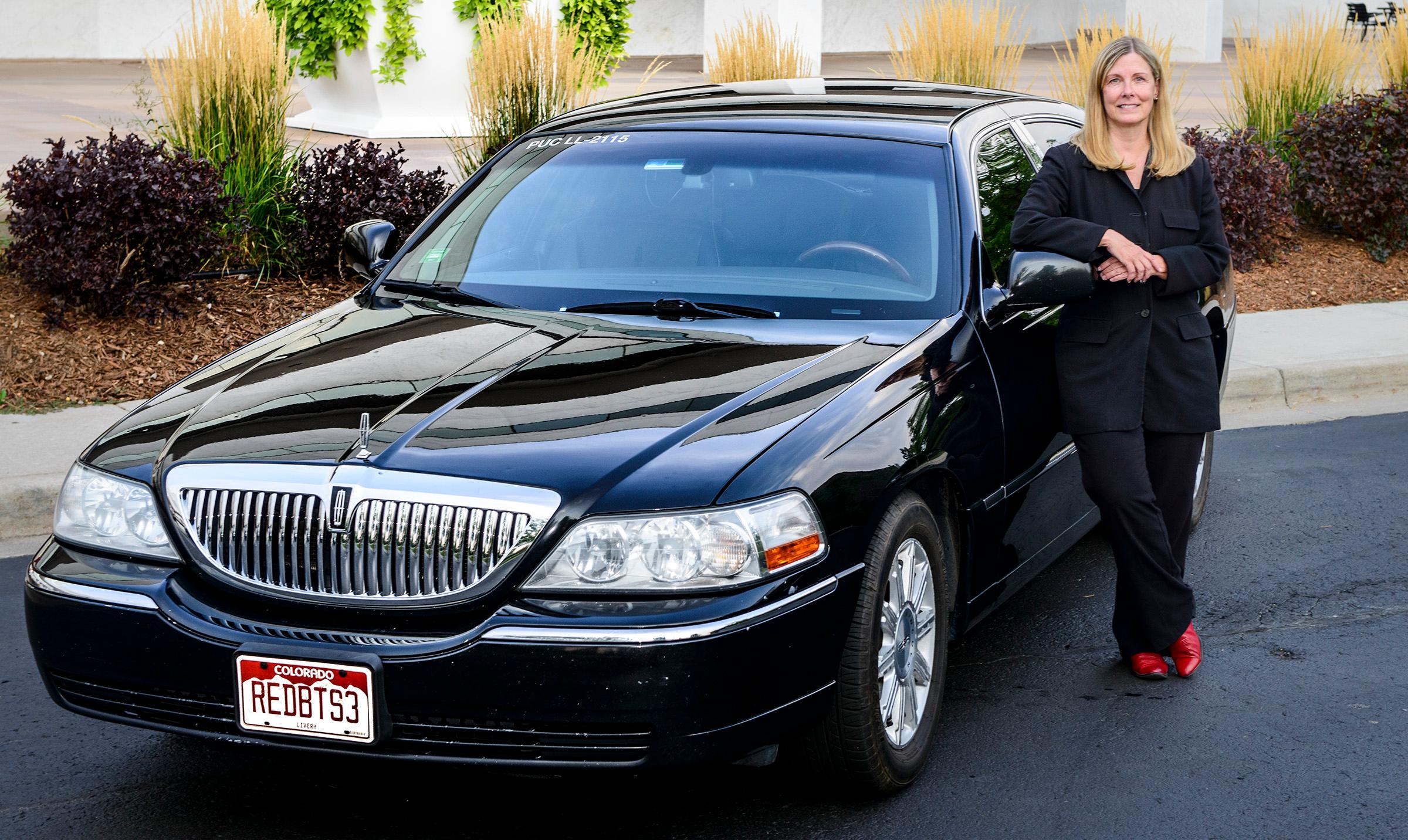
After a divorce about a decade ago, Mary Claire Friesema was penniless. So poor, she says, she didn’t know where her next meal was coming from. So she started driving a yellow cab. And within six months, she was invited to drive for a black car company.
“We all hung out in the holding lot out at the airport,” she said. “I was kind of the novel woman on the scene."
She wore an all-black uniform until May 31, 2012, when she started her own business — Red Boots Chauffeured Transportation.
“We all wear red boots. I love red boots,” she said. “It's kind of our little signature. If people see red boots they know it's us."
Her business caters to business travelers moving through the Denver International Airport. It operates on a thin profit margin, but she said she loves driving and providing a service for people. And it grew — she added an operations manager as recently as January of this year. Her first week of March was “fabulous,” she said.
And then, as governments began shutting down businesses and restricting travel over fears of spreading the coronavirus, the bottom fell out. Clients canceled trips left and right.
"By the end of the second week of March, business was down 99 percent,” she said.
Across the board, the transportation sector is struggling to stay afloat. Public transit agencies are seeing huge drops in ridership — Denver’s RTD says it’s seen a 60 percent drop in ridership. DIA is a ghost town and airlines like United are preparing to lay off thousands of workers unless they get a federal bailout.
Earlier this week, Friesema took a look at her books and estimated she has enough cash on hand to stay afloat for about 45 days. Asked how she came to that conclusion, she paused, and caught her breath.
“Hold on, I’ll answer you,” she said, her voice cracking. “It just felt like a kick to the gut … to watch what I worked for for eight years just disappear.”
Friesema and other members of the Colorado Limousine Association sent a letter to Gov. Jared Polis last week, warning that the ground transportation industry in the state is little more than a month from collapse.
“Professional sports teams, musicians, the Stock Show, theater companies, and other entertainers would lose the motor coach services they depend on,” they wrote. “Cities and counties would lose most of the contractors operating RTD routes, trailhead shuttles, and mobility transit services.”
And just restarting their businesses after the coronavirus has passed would be impossible, they wrote, because of the low prices investor-backed megacompanies like Uber and Lyft can offer. They need immediate financial help from the state and federal governments, they said. A group of national ground transportation trade associations made a similar appeal to the federal government this week.
Friesema said she can’t afford to wait to see if any financial help comes her way. She’s trying to come up with different ways to make money, like grocery and prescription delivery.
“It felt a little bit hopeless for a short while,” she said “[But] my tendency is to start figuring out what else to do.”









